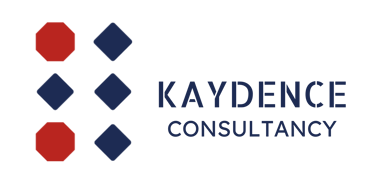Kaydence partners with the CSH to drive innovative solutions in education and healthcare.
Digital Marketing Trends in 2025: What You Need to Know
Stay ahead of the curve with our guide to the top digital marketing trends in 2025. Learn how AI, voice search, video marketing, AR/VR, and personalization are shaping the future of marketing, and how you can adapt your strategies to stay competitive in a rapidly evolving landscape.
MARKETING
1/29/20254 min read


As we look ahead to 2025, the digital marketing landscape is rapidly evolving. From cutting-edge technologies to shifts in consumer behavior, staying on top of emerging trends is essential for marketers looking to stay competitive. In this blog, we’ll explore the key digital marketing trends expected to shape the industry in 2025 and what businesses need to know to stay ahead.
1. AI and Machine Learning Integration
Artificial Intelligence (AI) and Machine Learning (ML) have already begun transforming digital marketing, but by 2025, these technologies will play an even more significant role. AI-powered tools will be more advanced, offering deeper insights into consumer behavior, personalized recommendations, and smarter automation. Marketers will leverage AI for tasks like content creation, customer support (through chatbots), and campaign optimization.
Why it matters: AI-driven marketing solutions allow for hyper-personalization, targeting customers with relevant content and ads at the right time. Businesses that adopt AI early will be able to deliver more engaging and effective marketing campaigns.
2. Voice Search and Conversational AI
With the rise of voice-activated assistants like Alexa, Siri, and Google Assistant, voice search is set to become even more influential in 2025. As voice technology improves, consumers will rely more on voice search to find products, services, and information. Alongside this, conversational AI will enable brands to engage with customers in a more natural and interactive way, enhancing the customer experience.
Why it matters: Marketers will need to optimize their content for voice search, which involves focusing on natural language and long-tail keywords. Conversational AI tools, like chatbots and virtual assistants, will help businesses automate customer interactions and provide 24/7 support.
3. Video Marketing Dominance
Video content will continue to reign supreme in 2025, especially with the growth of platforms like TikTok, YouTube, and Instagram. Short-form videos, live streaming, and interactive video ads will become integral to digital marketing strategies. Videos are a powerful tool for storytelling, brand awareness, and product promotion.
Why it matters: Video marketing offers an engaging and impactful way to connect with audiences. Businesses that integrate video content into their marketing strategies will be able to drive better engagement, increase brand recognition, and improve conversion rates.
4. Augmented Reality (AR) and Virtual Reality (VR)
The use of Augmented Reality (AR) and Virtual Reality (VR) in marketing will continue to grow in 2025. These immersive technologies allow customers to interact with products in unique ways, from virtual try-ons for fashion and makeup to AR-enabled ads that provide a more interactive shopping experience. Brands are using AR/VR to create memorable experiences that engage customers and boost conversions.
Why it matters: AR and VR provide businesses with innovative ways to showcase products, increase customer engagement, and offer unique brand experiences. With these technologies becoming more accessible, AR/VR will be essential for businesses looking to differentiate themselves in a crowded market.
5. Personalization and Data-Driven Marketing
In 2025, personalization will go beyond just addressing customers by their first names in emails. With the help of data analytics and AI, businesses will be able to deliver deeply personalized experiences that cater to individual preferences, behaviors, and purchase history. Customization will extend to every touchpoint, from personalized email campaigns to tailored product recommendations.
Why it matters: Personalized marketing leads to higher engagement and conversions. By leveraging customer data, businesses can create more relevant and meaningful connections with their audience, driving loyalty and increasing customer satisfaction.
6. Sustainability and Ethical Marketing
Consumers are becoming more conscious of the environmental and social impact of the brands they support. By 2025, sustainability and ethical marketing practices will be essential for businesses aiming to attract and retain customers. Brands that prioritize eco-friendly products, transparent sourcing, and social responsibility will gain favor with the increasingly eco-conscious consumer base.
Why it matters: Ethical and sustainable marketing is not just a trend—it’s a demand from consumers. Businesses that embrace sustainability and communicate their values will build trust, enhance their reputation, and resonate with socially responsible consumers.
7. Influencer Marketing Evolution
Influencer marketing will continue to thrive in 2025, but with a shift toward micro-influencers and niche markets. Instead of focusing solely on big-name influencers with massive followings, brands will collaborate with micro and nano influencers who have smaller, but more engaged, audiences. These influencers tend to have higher trust levels and more personal connections with their followers, making their endorsements highly effective.
Why it matters: Micro-influencers offer businesses a cost-effective way to reach a highly targeted and loyal audience. By working with influencers who align with their brand values, businesses can build more authentic and impactful campaigns.
8. Blockchain Technology and Transparency
Blockchain technology, known for its role in cryptocurrency, will play a growing role in digital marketing in 2025. By providing an immutable, transparent ledger, blockchain can offer marketers a way to build trust with consumers through transparent transactions, secure data handling, and anti-fraud measures. This could be especially valuable in areas like digital advertising and supply chain transparency.
Why it matters: Blockchain can reduce fraud and increase accountability in the digital marketing ecosystem. With consumers becoming more concerned about data privacy and security, using blockchain technology can help businesses build trust with their audience.
9. Programmatic Advertising and Automation
Programmatic advertising, the use of AI and machine learning to automate the buying and placement of ads, will continue to dominate in 2025. By automating the ad-buying process, businesses can ensure their ads reach the right audience at the right time, improving efficiency and reducing costs. Automation will also allow marketers to scale their campaigns and deliver more targeted messages with less effort.
Why it matters: Automated ad buying will allow businesses to optimize their ad campaigns in real-time, making it easier to adjust strategies based on performance data. Programmatic advertising ensures that marketing budgets are used more effectively, driving higher returns on investment.
Conclusion
The digital marketing landscape in 2025 will be defined by innovation, personalization, and technology-driven strategies. To stay competitive, businesses must embrace the latest trends, from AI and voice search to sustainability and influencer marketing. By adapting to these shifts, brands can create more engaging, relevant, and effective campaigns that resonate with their audience and drive business success. Keep an eye on these trends, and start integrating them into your digital marketing strategy to stay ahead in the ever-evolving digital world.
Kaydence Consultancy
Global platform for study abroad solutions, marketing strategy and your efficient research partner
Contact
Get in touch
director@kaydenceconsultancy.com
+9188916082
© 2025 Kaydence Consultancy. All rights reserved.
Designed with care | Powered by Innovation
Navigation
Company
Career
Legal
M G Road, Kochi, Kerala, India
